Harvard-Smithsonian Center for Astrophysics (CfA) on Overleaf
Overview
The Harvard-Smithsonian Center for Astrophysics (CfA) is providing Overleaf Professional features for all students, faculty and staff who would like to use a collaborative, online LaTeX editor for their projects. Overleaf Professional features include real-time track changes, unlimited collaborators, and full document history.
Overleaf is designed to make the process of writing, editing and producing your research papers and project reports much quicker for both you and your collaborators. Overleaf can also be linked to other services such as Git and Zenodo to best fit into your workflow.
Harvard Library offers a guide to help you use Overleaf at https://guides.library.harvard.edu/overleaf.
If you're affiliated with Harvard University, there are additional Harvard-specific resources available to you at https://www.overleaf.com/edu/harvard.
Claim your Overleaf Professional upgrade by signing up (or signing in) below. You'll need to verify a CfA email address (e.g. john.smith@cfa.harvard.edu) in order to receive free access to Overleaf Professional features.
Join a community of over 429 authors at Harvard-Smithsonian Center for Astrophysics (CfA)
Quick Start
Welcome to your quick start guide to Overleaf. We've put together some useful resources and links in the sections below, and if you have any questions about how to get started please let us know and we'll be happy to help!
For Students
Try out the Overleaf editor with built in tutorial
If you'd like to dive straight into the editor, simply click the button to create a new paper using our quick-start template. A short tutorial will walk you through the main features to quickly get you started.
Browse the Overleaf template gallery
You can find a selection of featured templates , or check out our full template gallery for more ideas and inspiration.
Take our free course to quickly master the LaTeX essentials
If you're new to LaTeX, we've put together a free online course to help you learn the basics. If you have never used LaTeX before, or if it has been a while and you would like a refresher, this is the place to start.
For Researchers
Find a journal template
Through our partnerships within the publishing community, we provide a selection of academic journal templates for articles and papers. These templates automatically format your manuscripts in the style required for submission to that journal.
Edit in Rich Text mode or directly in LaTeX
Overleaf provides an intuitive and easy-to-use manuscript editor (our rich text mode), which is especially useful if you or your co-authors aren't familiar with writing in LaTeX.
If you prefer to edit directly in LaTeX, you can! Overleaf provides a full collaborative online LaTeX editor you can switch to at any time.
Submitting your articles to journals, repositories and more
You can also submit your paper directly to a number of journals and other editorial and review services via the publish menu in the editor. Simply open the publish menu from any document and follow the appropriate 'Submit to ...' link.
For Teachers
Publishing your projects in the Overleaf gallery
A quick way to share your course templates or lecture notes is to publish them in the Overleaf gallery. You can publish any project from Overleaf to the gallery in just a few clicks.
Demonstrating auto-compile error handling to your students
Auto-compile helps users new to LaTeX to find errors in their syntax quickly and easily, and encourages them to fix them as they go, to produce clean, error-free documents.
Show your class how to turn on track changes for review (Overleaf v2 only)
Overleaf v2 offers an impressive collection of new and upgraded collaboration features, and your institutional subscription provides all users with access to the powerful track changes feature.
Intro Videos
Featured LaTeX Templates
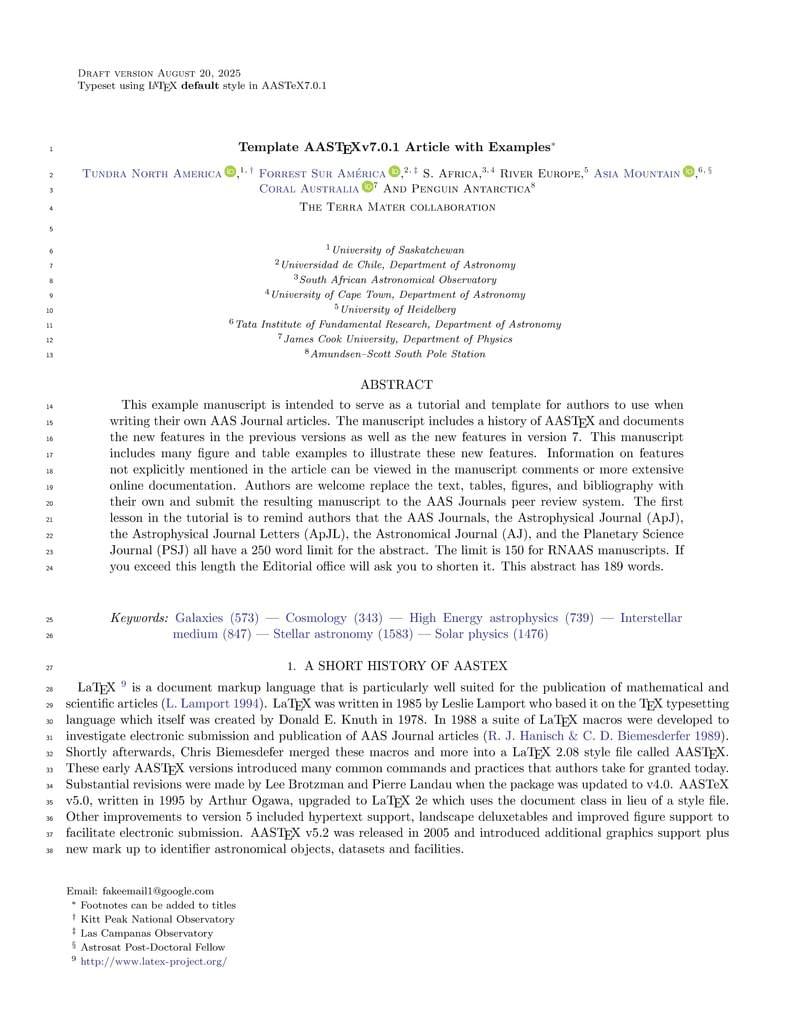
The American Astronomical Society (AAS) has developed a markup package to assist authors in preparing manuscripts intended for submission to all the AAS-affiliated journals. The journals are the Astrophysical Journal (ApJ), the Astronomical Journal (AJ), ApJ Supplements (ApJS), Letters (ApJL), The Planetary Science Journal (PSJ), and Research Notes of the American Astronomical society (RNAAS). The latest LaTeX classfile is AASTeX v7.0.1 and it can be obtained here. This is a bug fix for v7. The sample701.tex template uses this classfile to illustrate some of the newer features for submissions to the main Journals. Authors should consult the extensive guide for all the features in AASTeX v7+ Once your manuscript is complete, check the AAS journals pre-submission checklist to make sure you're ready to submit. Then use the "Submit to Journal" option in the Overleaf editor to submit your files directly to the journal for processing. Note that you will still need to log on to the submission site to supply additional meta-data. The transfer to the peer review site can take some time so please be patient. The editorial office will contact you when your submission has been processed and is ready for the final meta-data input. If you're new to LaTeX, check out our free online introduction to help you get started, or please get in touch if you have any questions.
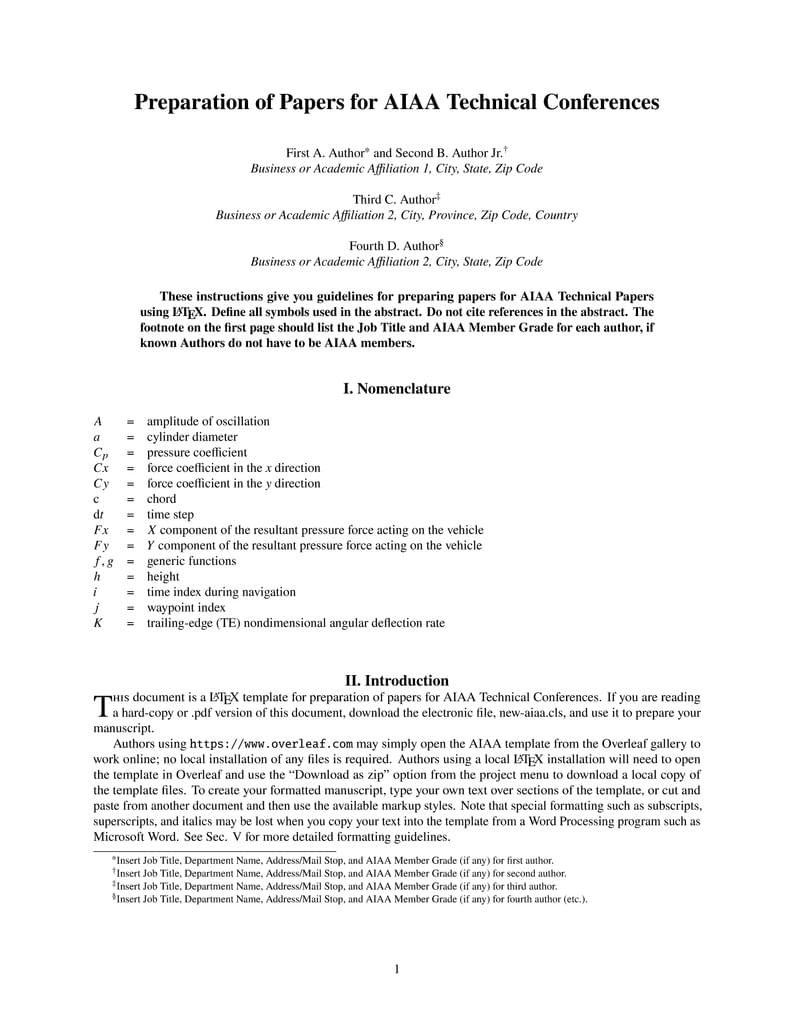
These instructions provide guidelines for preparing papers for AIAA Technical Conferences using LaTeX. AIAA is the catalyst for inspired idea exchange and solutions, a convener of the most original perspectives, and curator of essential research information. For the past 50 years, individuals and teams from around the globe have presented their latest research to their peers at AIAA conferences. To begin writing online (in your browser), simply click the Open as Template button, above. Additional guidelines for preparing your submission are included within the template itself. If you'd like to download any of the template files including the .cls file, please click "Open as template" above, then download the template “Source” zip file from the menu. For a list of AIAA forums and other events currently accepting abstracts, visit the AIAA events listing page. If you're new to Overleaf and LaTeX, check out our free introductory course for help getting started.
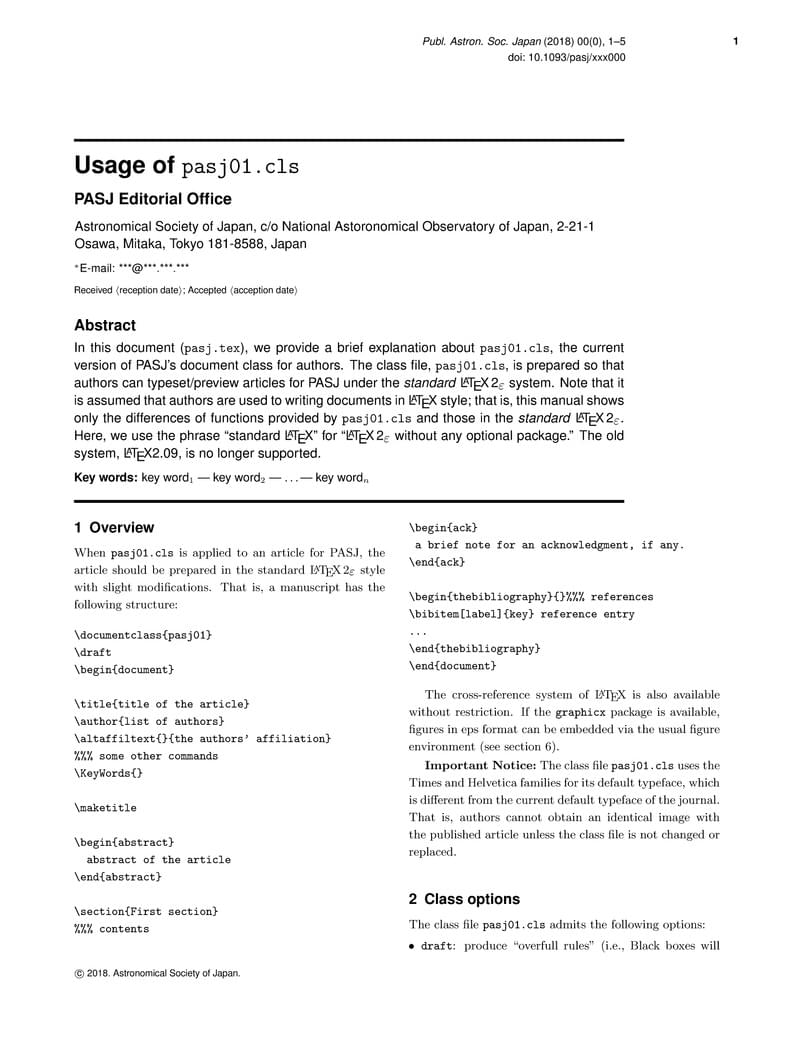
The Journal of Logic and Computation aims to promote the growth of logic and computing, including, among others, the following areas of interest: Logical Systems, such as classical and non-classical logic, constructive logic, categorical logic, modal logic, type theory, feasible maths. The bulk of the content is technical scientific papers, although letters, reviews, and discussions, as well as relevant conference reviews, are included. For more information about the journal, see http://pasj.oxfordjournals
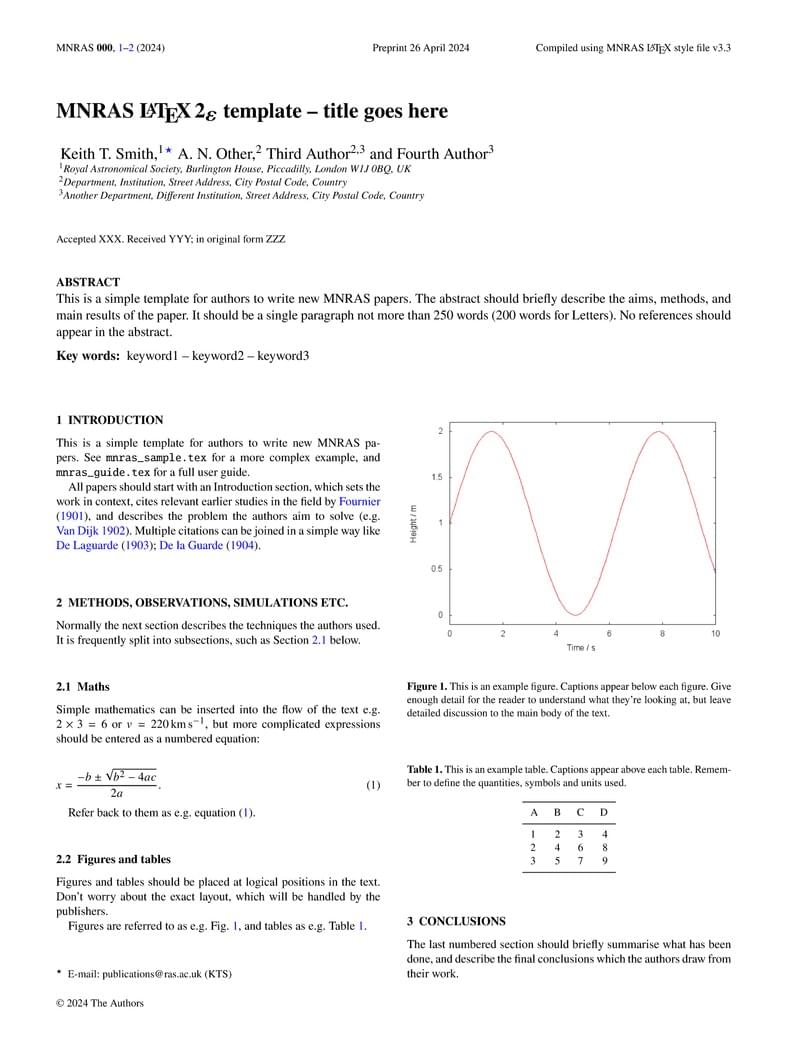
This is a template and guide for preparing papers for Monthly Notices of the Royal Astronomical Society using the 'mnras' LaTeX package. See the mnras_template.tex file (included and used by default when opening the template) for a simple template to help you get started. The mnras_guide.tex file (also included) provides instructions for using the additional features in the document class. This is not a general guide on how to use LaTeX, and nor does it replace the journal's instructions to authors.
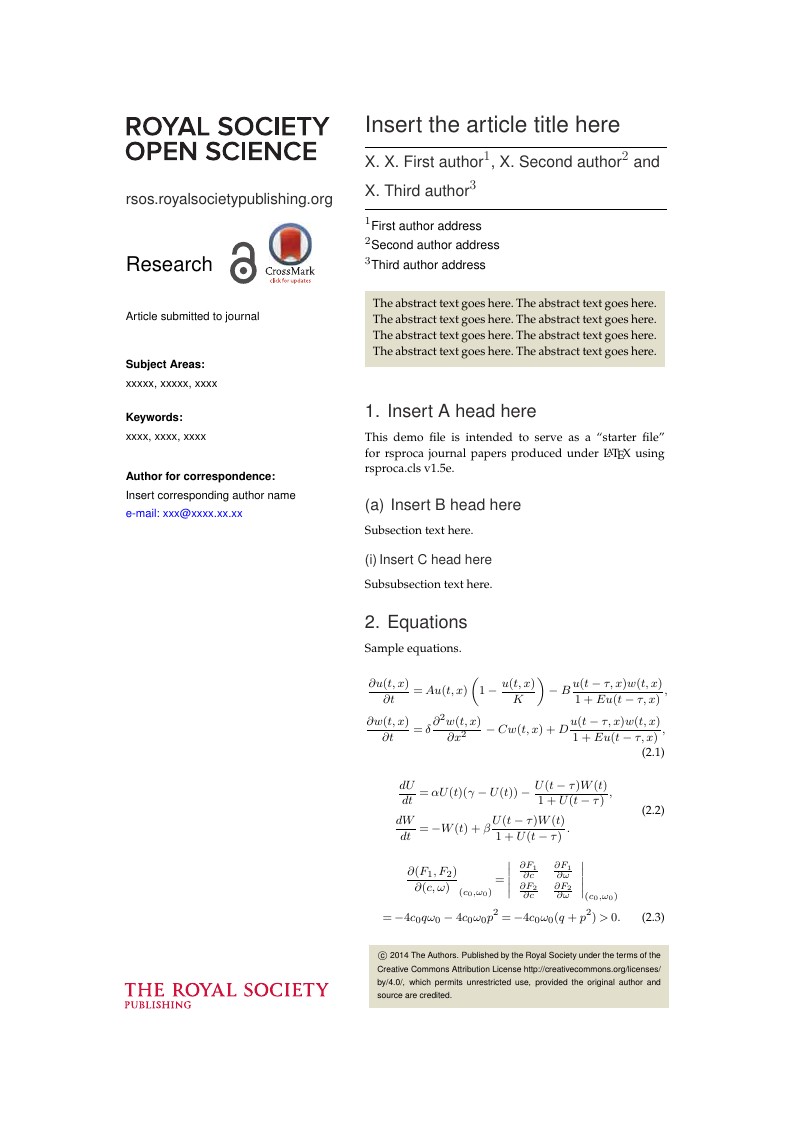
This is the LaTeX template for the Royal Society Open Science – a fast, open journal publishing high quality research across all of science, engineering and mathematics.
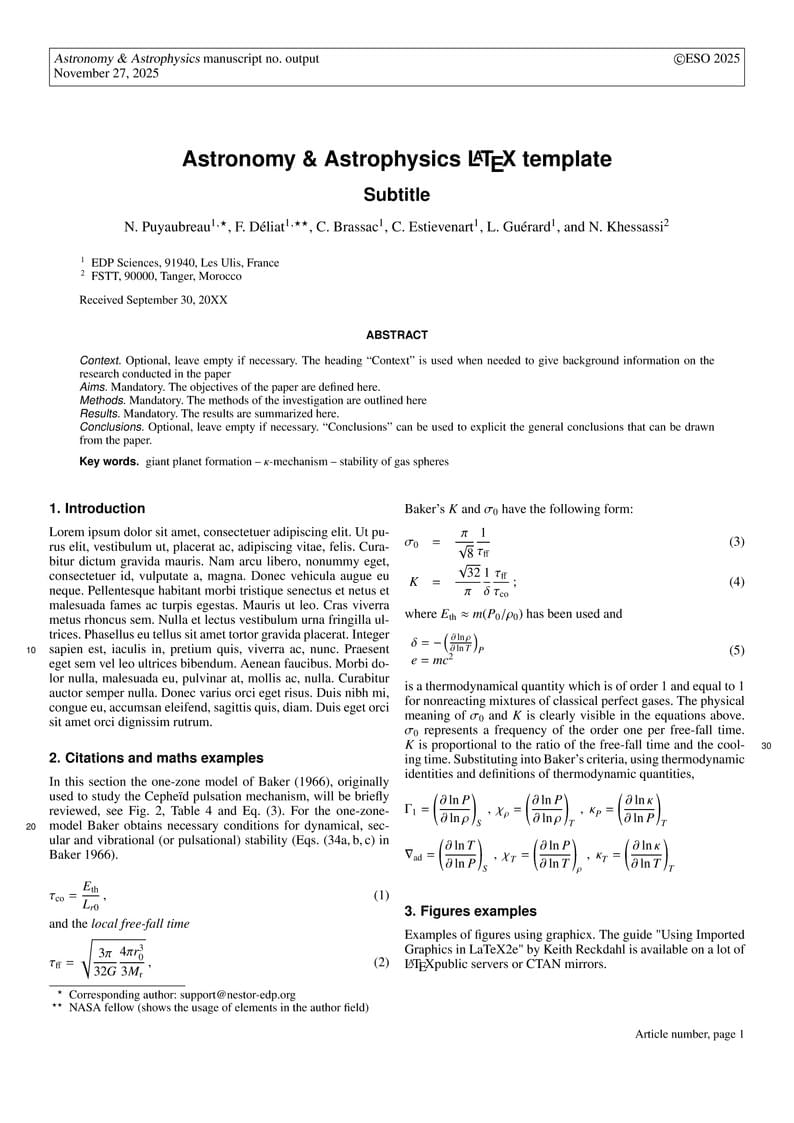
A&A LaTeX macro package v9.3 downloaded from https://www.aanda.org/for-authors 9.3 October 2025 - Behaviour of the [longauth] command is modified to shift the whole author list and affiliations after references.
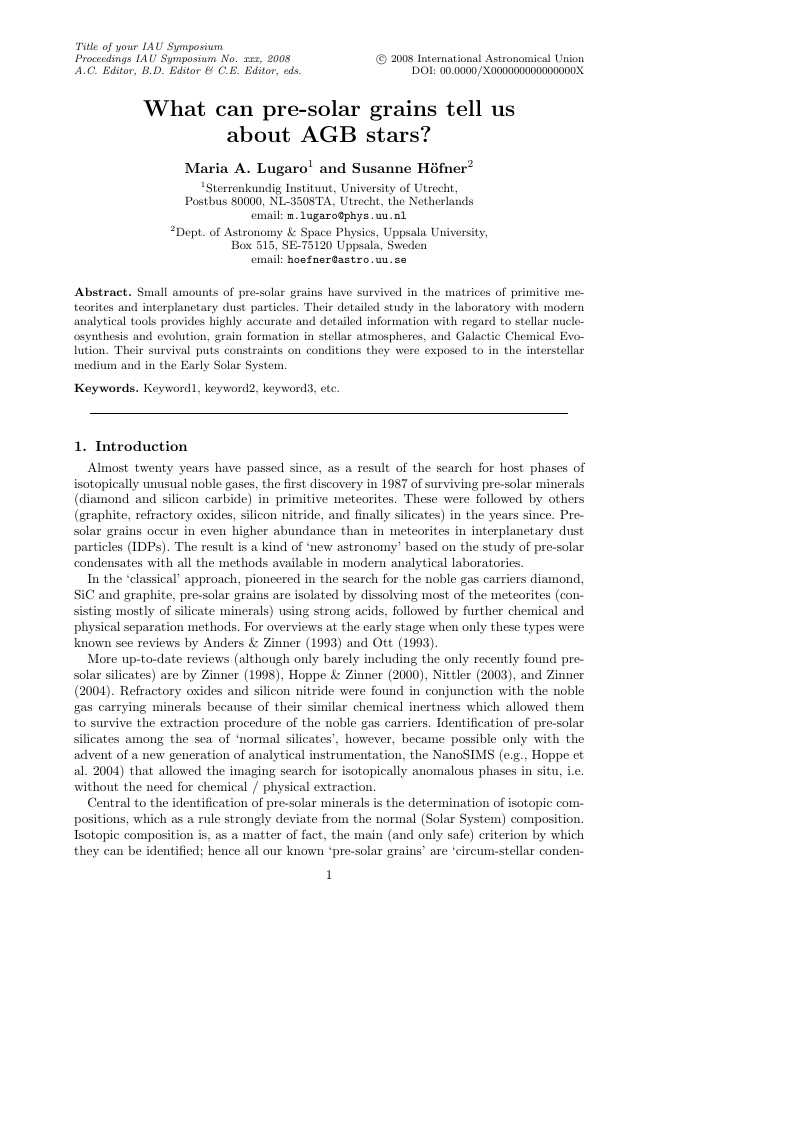
A Latex template for the preparation of IAU Symposia Proceedings downloaded from http://www.iau.org/static/scientific_meetings/authors/. The package contains: Class File (iau.cls), Instructions, a Sample PDF and a Sample TeX file
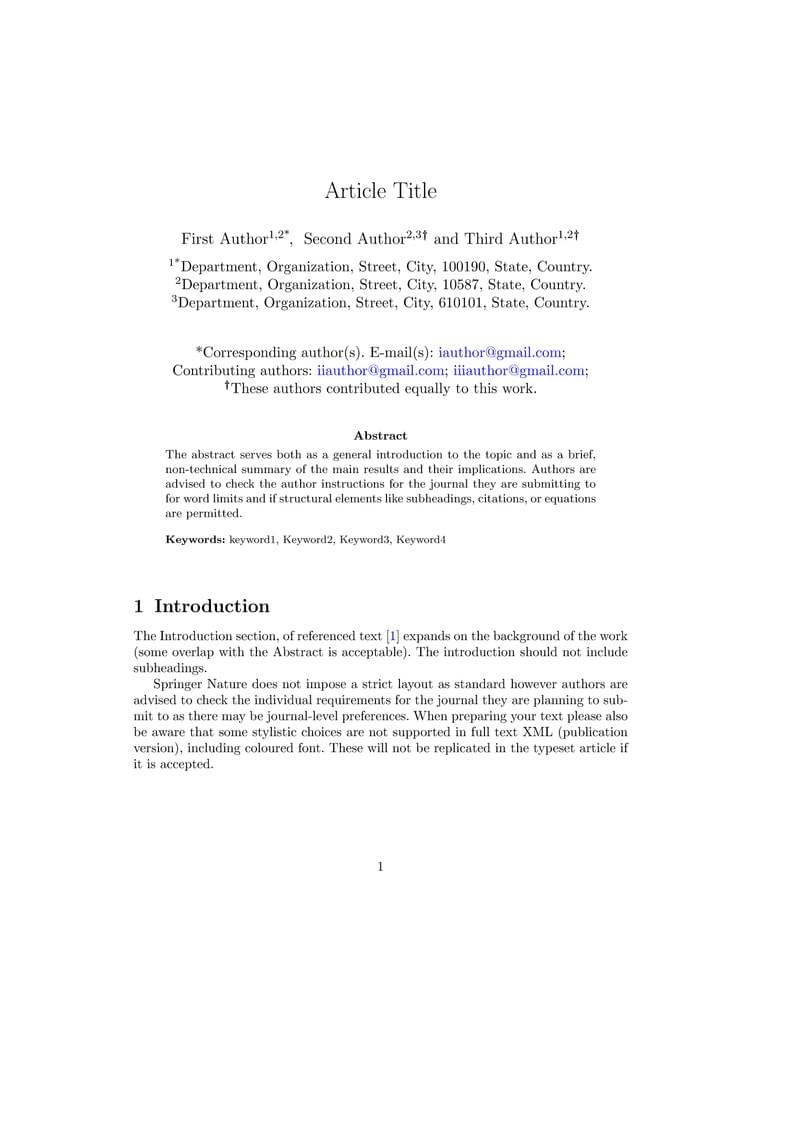
The official Springer Nature authoring template for LaTeX submissions. The template takes a content first approach with minimal formatting. It is designed to promote editorial policy best practice and contains options to help authors meet journal-level requirements. Latest update: December 2024.
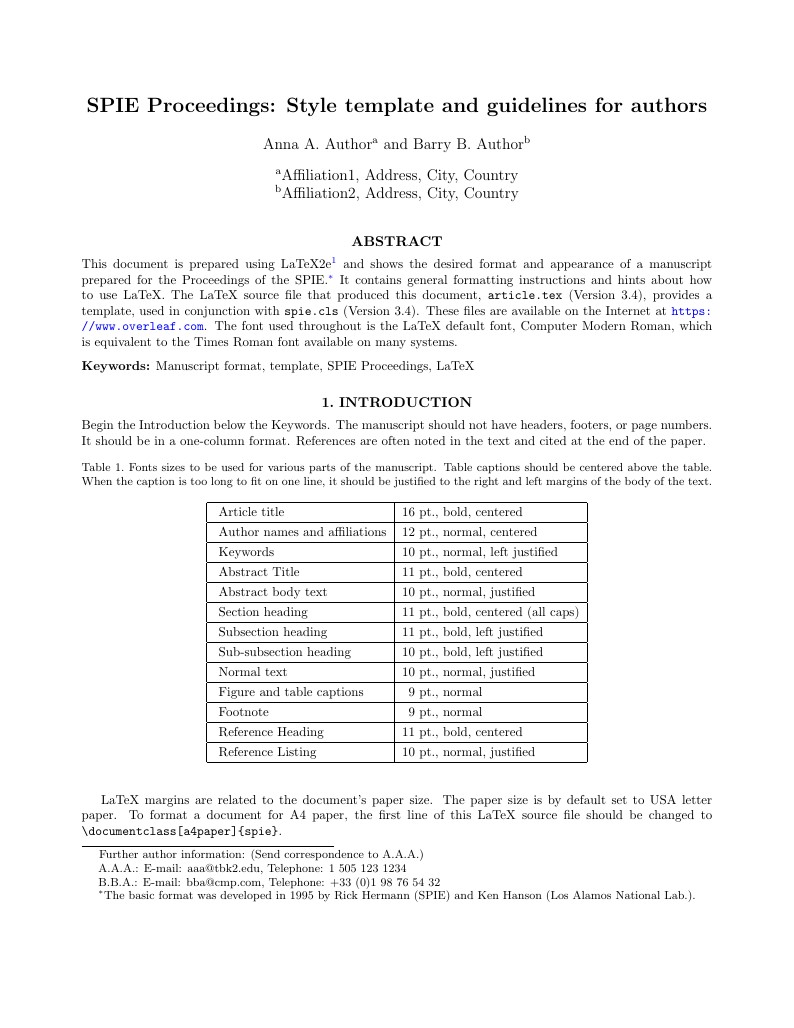
This template is for authors submitting a manuscript to SPIE Proceedings based on an oral or poster presentation at an SPIE conference. The Overleaf template allows authors to write, edit, and collaborate online. Authors can then submit the paper to SPIE Proceedings by downloading the PDF and source files generated from Overleaf. Detailed information about submitting a manuscript to SPIE Proceedings can be found at http://spie.org/x14105.xml. If you're new to Overleaf and LaTeX, check out our free introductory course for help getting started.
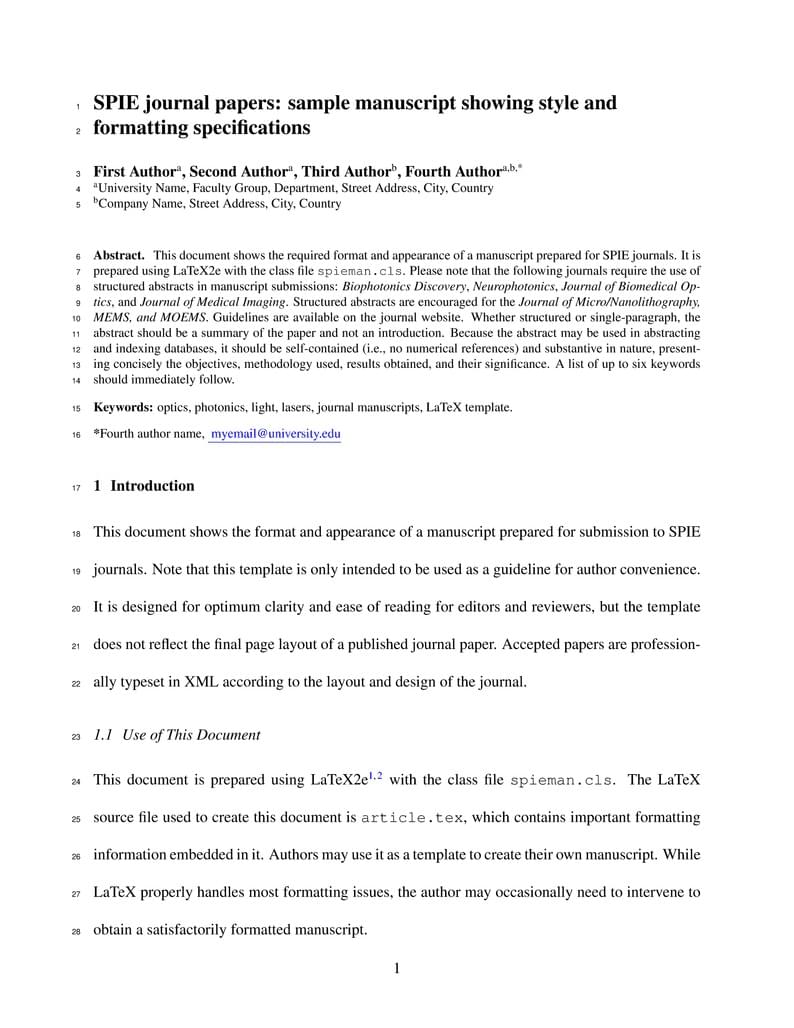
This template is for authors submitting a manuscript to an SPIE journal. The Overleaf template allows journal authors to write, edit, and collaborate online. Authors can then submit the paper to an SPIE journal by downloading the PDF and source files generated from Overleaf. Detailed author guidelines for SPIE journals can be found at http://spie.org/AuthorGuidelines.
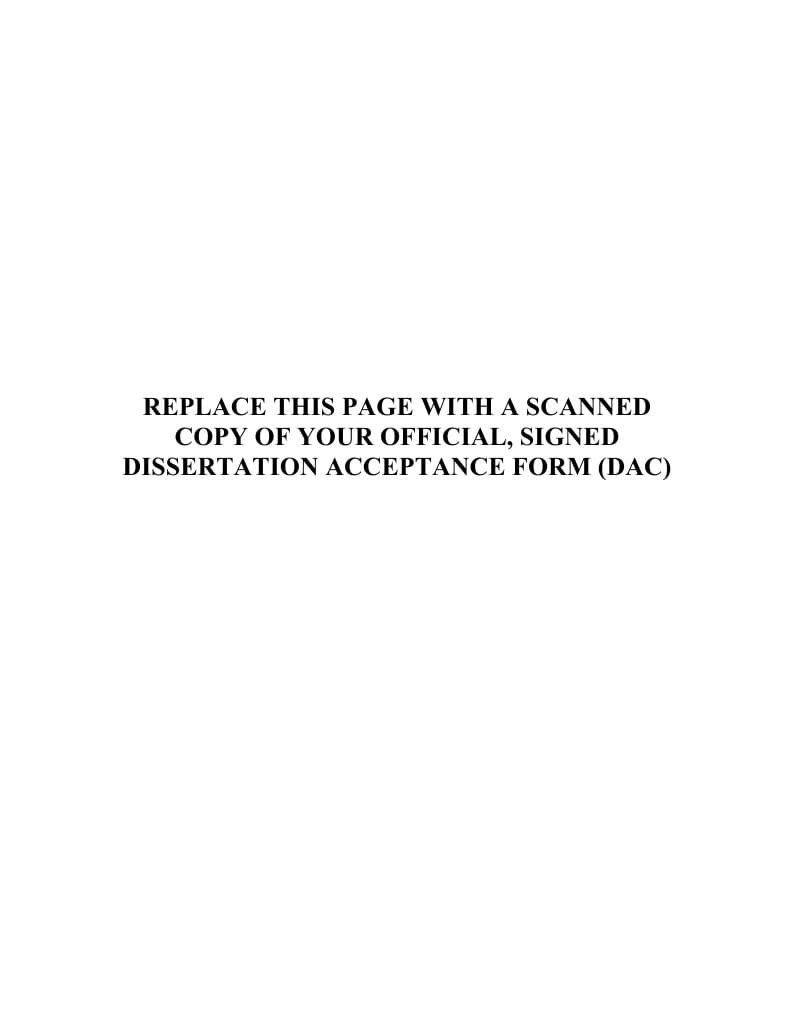
Harvard University PhD Thesis Template Default settings for Department of Astronomy, but customizable for any GSAS department
FAQ & Help
Who should I contact if I have questions about Overleaf or the CfA license?
Please use our contact form and we'll make sure your question gets to the right person.
I'm new to Overleaf, how should I get started?
We've put together a short How do I use Overleaf help page to give you pointers on exactly that :)
How do I keep my projects private?
You can keep your projects private by using the Protected Projects feature included with your Pro account. Here's more information about how to use Protected Projects.
Are there guides available to help me use Overleaf?
Yes, Harvard Library offers a guide to help you use Overleaf at https://guides.library.harvard.edu/overleaf.
More
- Sharing your work with others
- Track changes and comments
- Joining an institutional subscription
- Using the Overleaf history feature
- Helpful how-to guides
More resources from the Harvard-Smithsonian Center for Astrophysics
Please visit the CfA Library website for more information and a list of other useful resources and services.
The photo shown at the top of this page is of the Center for Astrophysics at Harvard University in Cambridge, Massachusetts, USA. It was taken by Pingswept in 2005 and is reproduced here under the CC BY-SA 2.0 license.